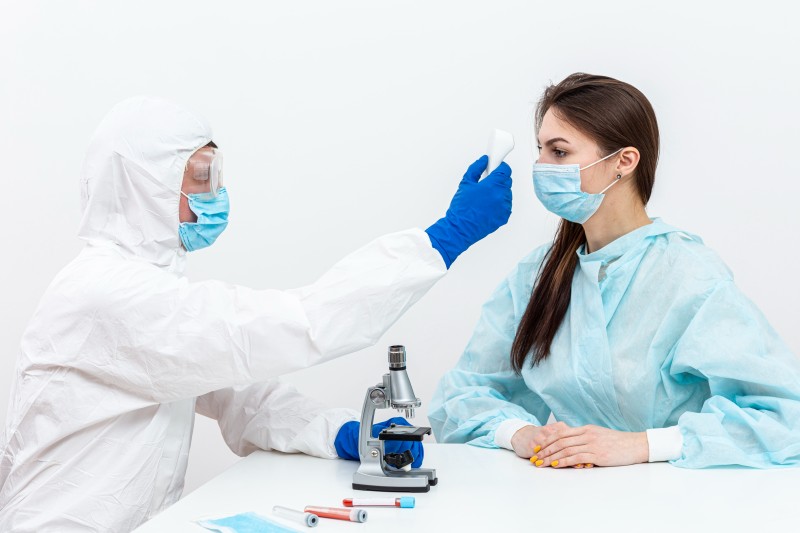When it comes to sexual health, one of the most overlooked yet vital aspects is STI testing. Despite the growing awareness around safe sex practices, many people still carry myths and misconceptions about sexually transmitted infections (STIs) and the process of getting tested. These myths often prevent individuals from taking timely action, which can lead to serious health issues in the long run. In this article, we will break down these misconceptions, highlight the importance of regular STI tests, and guide you through the options available, from clinics to at-home STI test kits.

Why STI Testing is Important
Regular STI testing is not just about detecting infections—it’s about protecting yourself, your partner, and your overall health. Many STIs, including chlamydia, gonorrhea, syphilis, and HIV, often show no symptoms in their early stages. Without a test, infections may go unnoticed and cause long-term complications such as infertility, organ damage, or increased risk of transmitting infections to others.
By scheduling regular tests, you are taking a responsible step toward maintaining your sexual health. Whether you search for “STI testing near me” or opt for an STI testing blood test, knowing your status helps you make informed decisions and seek treatment early if necessary.
Common Myths and Misconceptions About STI Testing
1. Myth: Only people with multiple partners need STI tests.
Fact: STIs can affect anyone who is sexually active, even in monogamous relationships. Past exposure, unprotected sex, or even lack of prior testing can put anyone at risk. Regular testing is for everyone, not just those with multiple partners.
2. Myth: You’ll know if you have an STI.
Fact: Many STIs do not show visible symptoms right away. Conditions like chlamydia or HPV can remain silent for months or years. The only way to be sure of your status is through an STI test.
3. Myth: STI tests are painful and embarrassing.
Fact: Modern testing methods are simple and discreet. Options include swabs, urine samples, and blood tests. A basic STI testing blood test can be completed quickly, with results often available in a few days.
4. Myth: Getting tested means you’re promiscuous.
Fact: Prioritizing your health is a sign of responsibility, not judgment. Just as you would go for a dental check-up, regular STI testing is part of taking care of your body.
5. Myth: At-home STI test kits are not reliable.
Fact: Today’s STI test kits are FDA-approved and highly accurate when used correctly. They allow you to test for a variety of infections from the privacy of your home, making it more convenient for those who feel uncomfortable visiting a clinic.
Types of STI Testing Available
When you search for “STI STD test near me”, you’ll find several testing options. Each method depends on the type of infection and your healthcare provider’s recommendations:
- Urine Test: Often used for chlamydia and gonorrhea.
- Blood Test: Essential for detecting HIV, syphilis, and hepatitis. Many clinics offer an STI testing blood test as part of a full panel.
- Swab Test: Used for infections like HPV or herpes, where cell samples are collected.
- At-Home STI Test Kits: Convenient for those seeking privacy and flexibility. Kits are mailed to your home, and samples are sent back to a certified lab. Results are shared confidentially online.
How to Find STI Testing Near You
If you are wondering, “Where can I find reliable STI testing near me?”, the good news is that options are more accessible than ever. Local clinics, urgent care centers, and specialized sexual health centers often provide walk-in testing services. Additionally, online resources can help you locate STI STD tests near me with reviews and cost transparency.
For individuals who prefer privacy, ordering an STI test kit online is a convenient alternative. These kits cover a wide range of infections and provide accurate results without needing to step into a clinic.
Breaking the Stigma Around STI Testing
One of the biggest barriers to regular STI testing is the stigma associated with it. Fear of judgment, embarrassment, or lack of awareness prevents people from taking control of their sexual health. But the reality is, millions of people undergo testing each year, and it is a normal part of maintaining well-being.
Breaking this stigma starts with open conversations, education, and normalizing the idea that regular STI testing is just as important as any other medical check-up.
Conclusion
STI testing is not something to fear or feel ashamed of—it’s a proactive step toward protecting your health and the health of others. By debunking myths and understanding the available testing options, from a local STI STD test near me to at-home STI test kits, you empower yourself to make informed choices. Remember, the earlier you get tested, the sooner you can seek treatment if needed and maintain a healthy, worry-free lifestyle.
Frequently Asked Questions (FAQs)
1. How often should I get an STI test?
If you are sexually active, it’s recommended to get tested at least once a year. Those with multiple partners or new partners should consider more frequent testing.
2. What infections are usually covered in an STI test?
Most panels cover HIV, syphilis, gonorrhea, chlamydia, and hepatitis. Some tests also screen for herpes and HPV.
3. Is an STI testing blood test accurate?
Yes. Blood tests are highly reliable for detecting infections like HIV, syphilis, and hepatitis. They are often combined with urine or swab tests for comprehensive results.
4. Can I use an STI test kit at home?
Absolutely. At-home STI test kits are convenient, private, and accurate. They are especially useful if you prefer not to visit a clinic in person.
5. How quickly will I get my results?
Depending on the type of test, results may take anywhere from 1 to 7 days. At-home kits usually provide results online within a week.
Confidential, quick, and professional STI Testing services. Visit our website https://tscmlk.com/ and call us at (469) 981-0529 today to book your test.
